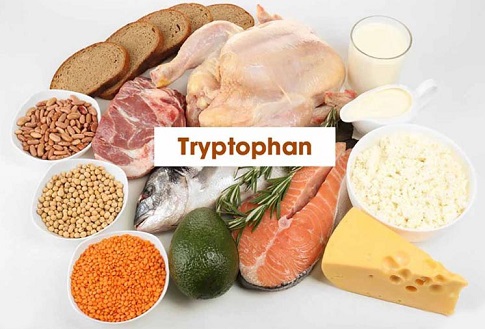Nikhil Prasad Fact checked by:Thailand Medical News Team Aug 04, 2024 8 months, 1 week, 3 days, 12 hours, 30 minutes ago
Cancer Updates: Introduction to Liver Cancer and Tryptophan
Liver cancer, specifically Hepatocellular Carcinoma (HCC), is a formidable disease and the third leading cause of cancer mortality globally. Despite various treatments, the five-year survival rate remains around 30%. Recent research has uncovered a fascinating link between liver cancer growth and the amino acid tryptophan. This
Cancer Updates news report delves into the groundbreaking findings from researchers at the University of Texas Southwestern Medical Center-USA and explores how tryptophan plays a crucial role in liver cancer progression.
 Foods rich In tryptophan that should be avoided when facing liver cancer
Tryptophan's Role in Liver Cancer
Foods rich In tryptophan that should be avoided when facing liver cancer
Tryptophan's Role in Liver Cancer
Researchers from the University of Texas Southwestern Medical Center found that liver tumors driven by the MYC oncogene show increased uptake of tryptophan. MYC, an oncogene, is abnormally activated in many liver cancer patients and significantly contributes to cancer progression. The study revealed that although MYC-driven liver tumors consume more tryptophan, the usual pathway for tryptophan metabolism, known as the kynurenine pathway, is not fully utilized. Instead, these tumors convert tryptophan into a metabolite called indole-3-pyruvate (I3P), which fuels tumor growth.
The Impact of Tryptophan Deprivation
One of the pivotal findings was that depriving MYC-driven tumors of tryptophan halted their growth and even restored the transcriptional profile of normal liver cells. This was achieved through a tryptophan-free diet in mice, which resulted in a significant reduction in liver tumor size and an increase in survival rates. The research indicates that I3P plays a crucial role in liver tumor growth and suggests that targeting this metabolite could offer new therapeutic avenues for treating MYC-driven cancers.
Comparison with Other Cancers
The study also compared the effects of tryptophan deprivation on liver cancer with other types of cancer. Unlike colon cancer, where tryptophan metabolites like kynurenine are increased, liver cancer shows a unique metabolic pathway where I3P becomes a significant player. This distinction underscores the importance of understanding cancer-specific metabolic demands to develop effective dietary or pharmacological interventions.
Physiological Effects of Tryptophan-Free Diet
The researchers observed that a tryptophan-free diet not only affected liver tumors but also had broader physiological effects. Mice on this diet lost weight, predominantly fat mass, while maintaining lean mass. Interestingly, the weight loss was reversible upon reintroducing tryptophan, suggesting that short-term tryptophan deprivation could be a viable strategy without long-term adverse effects.
Mechanism of Tryptophan's Influence on Protein Synthesis
Another critical aspect of the study was understanding how tryptophan deprivation impacts protein synthesis in liver
cancer cells. Despite the absence of tryptophan, liver cancer cells continued to synthesize proteins effectively. This was attributed to the increased expression of amino acid transporters, particularly those for tryptophan, allowing cells to adapt and maintain protein synthesis rates. This finding challenges the conventional belief that essential amino acid deprivation would directly impede protein production and cell growth.
Therapeutic Potential of Targeting I3P
Further experiments demonstrated that supplementing I3P could rescue the growth of tryptophan-starved liver cancer cells, both in vitro and in vivo. This suggests that I3P is a critical oncometabolite for MYC-driven liver tumors. Importantly, targeting I3P could offer a new therapeutic approach, potentially in combination with other treatments to inhibit tumor growth more effectively.
Conclusion
The research highlights the complex relationship between cancer metabolism and nutrient availability. By elucidating the role of tryptophan and its metabolite I3P in liver cancer, the study opens new avenues for therapeutic strategies. Targeting specific metabolic pathways unique to different cancer types could lead to more effective and tailored treatments.
The findings from these studies were published in the peer-reviewed journal: Nature Communications.
https://www.nature.com/articles/s41467-024-47868-3
For the latest
Cancer Updates, keep on logging to Thailand Medical News.
Read Also:
https://www.thailandmedical.news/news/steroid-abuse-linked-to-liver-cancer
https://www.thailandmedical.news/news/inhibiting-key-enzyme-fatty-acid-synthase-shows-promise-for-liver-cancer
